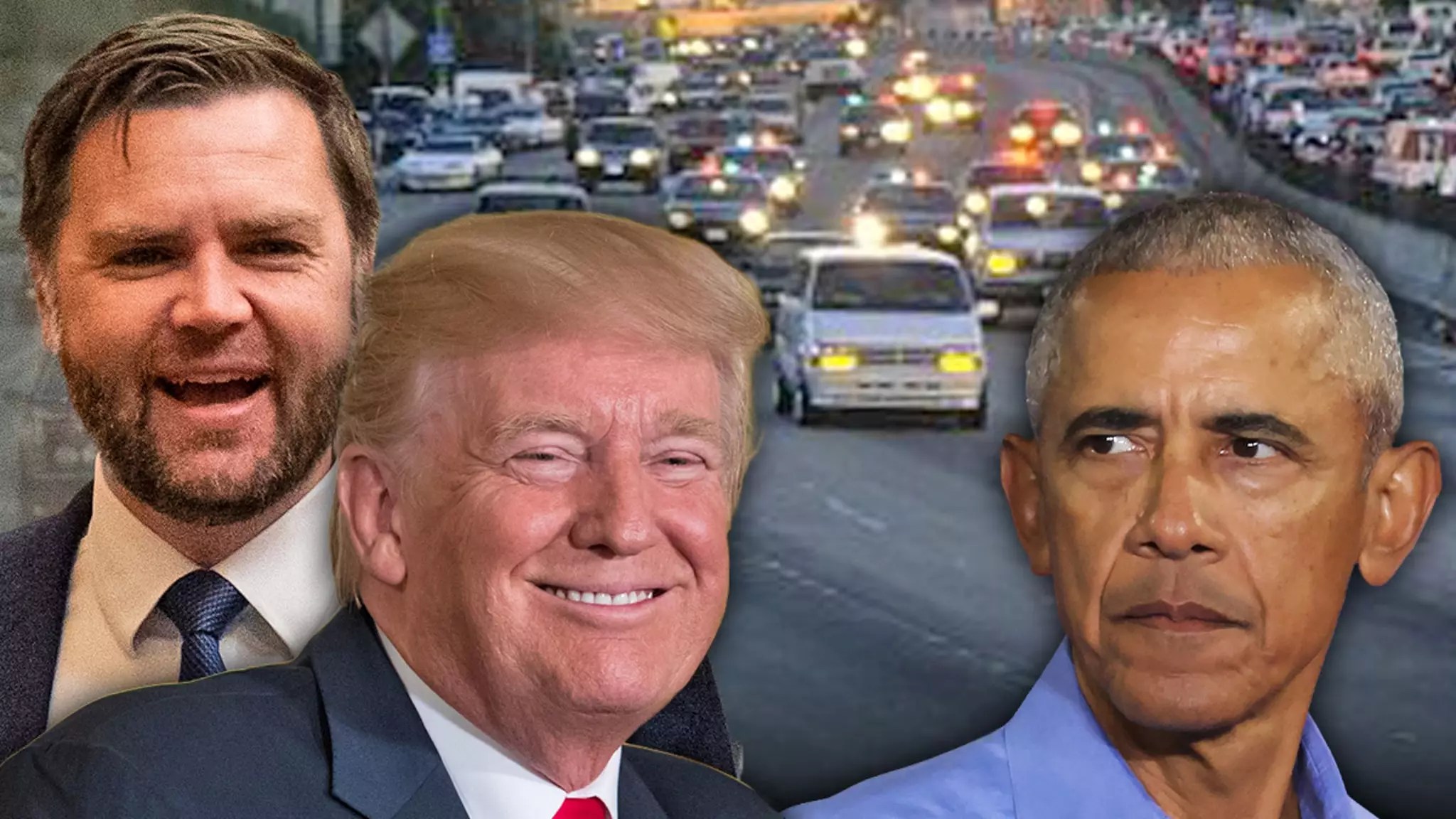In contemporary politics, imagery has transcended traditional rhetoric to become a potent weapon of persuasion and opposition. The recent Social media post by President Donald Trump exemplifies this shift. By photoshopping himself and other political figures into a well-known scene—O.J. Simpson’s infamous 1994 police chase—Trump taps into a well of American cultural symbolism. This meme choice is deliberate, aiming to evoke the chaos, notoriety, and controversy that have defined that moment in both legal and media history. In doing so, it underscores the highly performative nature of modern political confrontation, transforming complex issues like election interference and allegations of treason into digestible visual narratives. The president’s decision to share this meme signals a deeper strategy: leveraging shock value and familiarity to energize his base, question opponents, and dominate the digital political landscape.
Furthermore, this approach exemplifies how politicians today metamorphose into media personalities, often blurring the lines between policy and entertainment. Trump’s meme doesn’t merely criticize Obama; it simplifies a complex series of allegations—namely, claims about Russian collusion—into a meme that can be quickly shared, commented on, and amplified. Such tactics underscore the importance for leaders to craft messages that resonate on visceral, emotional levels rather than through nuanced debate. The visual language chosen here is intentionally provocative, hinting at treachery and conspiracy, thus entrenching partisan divides while also appealing to voters who crave spectacle over substance.
Distraction or Legitimate Political Strategy?
Much of the current political theater hinges on accusations, counter-accusations, and the strategic use of misinformation. The meme, cheekily reposted from Donald Trump Jr., is more than mere humor; it’s a calculated move to shift public attention away from internal controversies, such as investigations into Jeffrey Epstein, or unresolved questions surrounding the 2016 election. By framing Obama as a conspiratorial figure in a highly charged visual, Trump seeks to invoke suspicion and undermine trust in previous administrations, aligning with a broader trend of destabilization that aims to erode institutional credibility.
However, the effectiveness of this tactic remains contested. Critics argue that such Memetic warfare diminishes meaningful political discourse, reducing complex geopolitical issues to meme-ready soundbites. Yet, supporters celebrate it as a form of authentic populist communication—an honest expression of frustration with what they perceive as establishment interference. The real question is whether these visual manipulations serve as genuine political strategy or merely as distractions designed to divert public scrutiny. If the goal is to maintain influence amid a fractured political environment, framing issues through powerful images often proves more effective than traditional debate.
The Impact of Social Media on Political Authenticity
This episode highlights a profound transformation in how political figures present themselves and engage with their audiences. Social media provides a platform where carefully curated images and memes outperform traditional speeches in terms of reach and emotional impact. In this digital age, authenticity is often sacrificed for sensationalism—leaders become caricatures, using humor and shock to connect. Trump’s meme, laden with cultural references, capitalizes on this trend, making politics a form of entertainment that can quickly mobilize supporters or antagonize opponents.
Yet, this raises critical questions about the integrity of political communication. Does the reliance on memes and visual gags dilute the seriousness of governance? Or is it merely a reflection of a society increasingly driven by visual stimuli and instant gratification? Regardless of opinion, it’s evident that modern leadership requires a mastery of digital propaganda—an acknowledgment that perception often trumps reality. As these memes circulate, they shape narratives that can cement loyalties or deepen divisions, making the future of political debate more spectacle than deliberation.
In the end, political meme warfare is emblematic of a broader cultural shift—one where image, emotion, and quick wit take precedence over careful analysis. Leaders now operate as much in the realm of viral content as in official documents, and the stakes are higher than ever for those attempting to control the narrative.







Leave a Reply